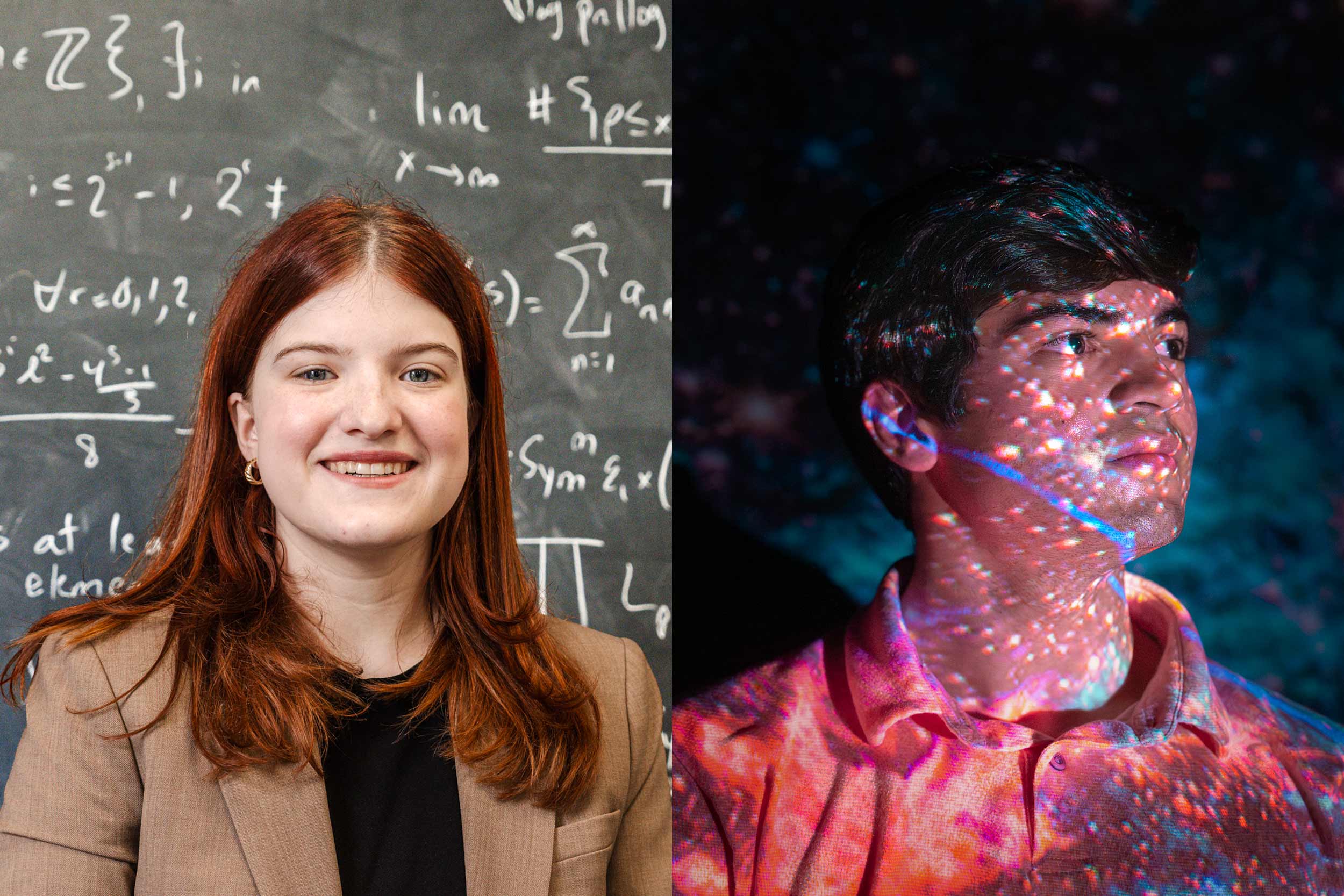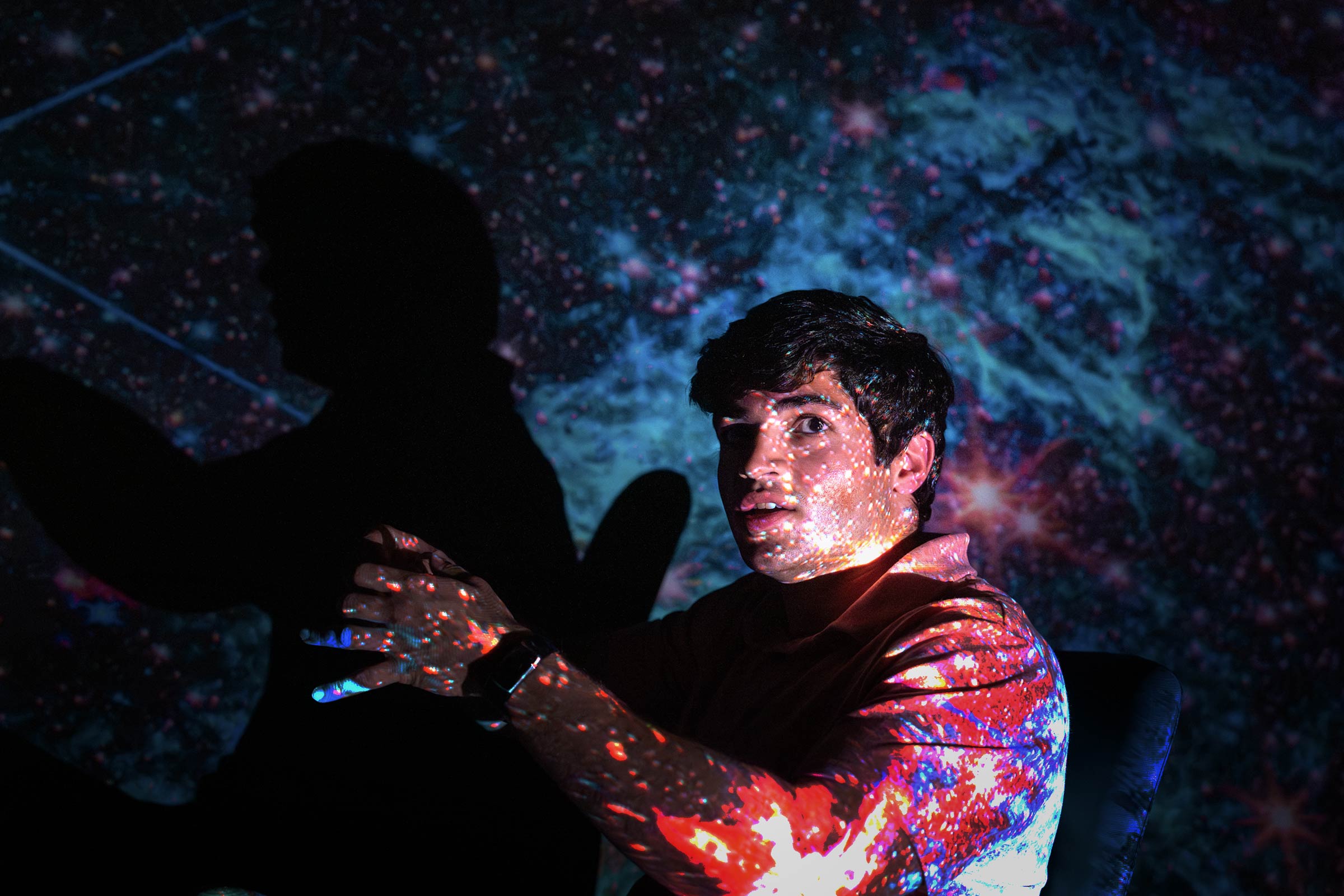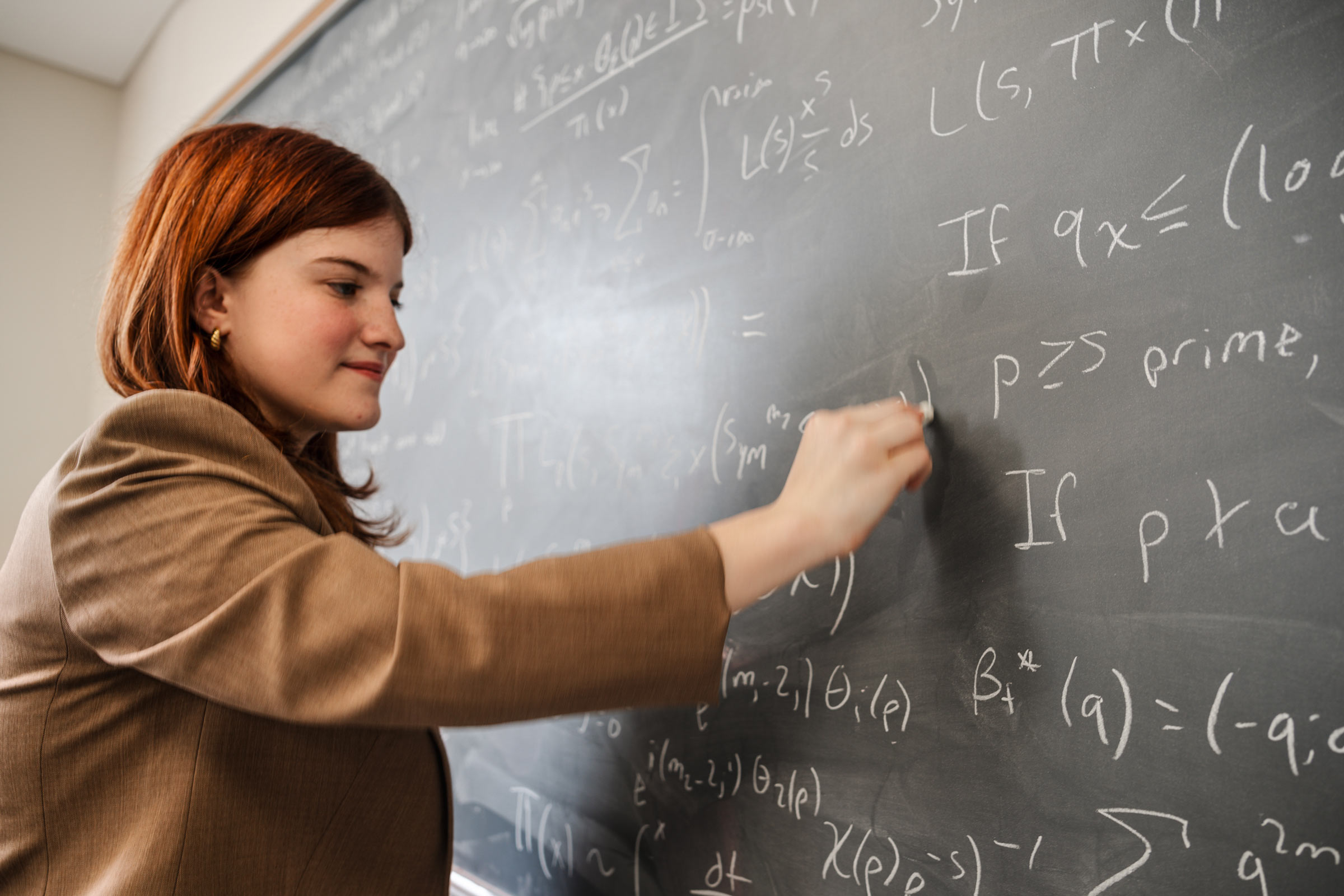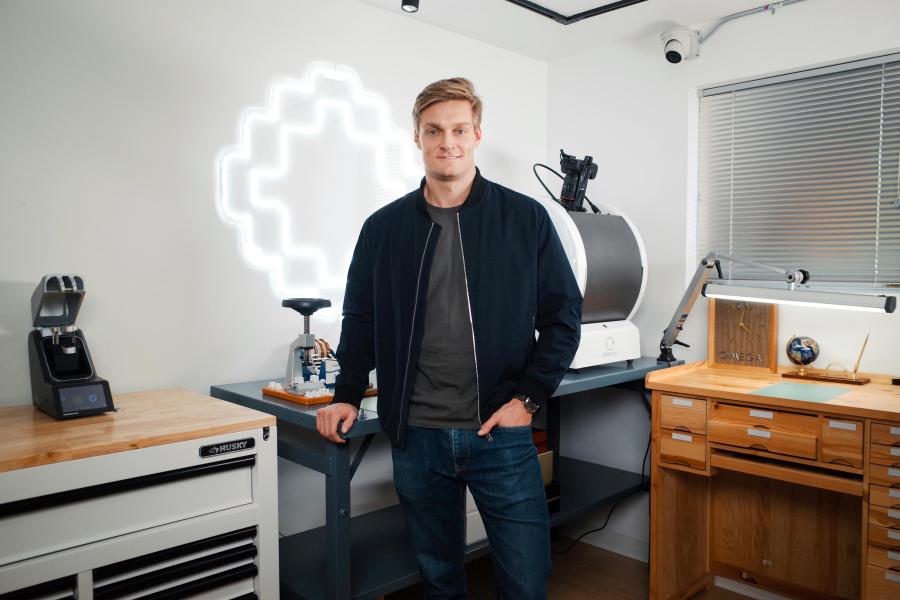Ken Ono, STEM adviser to UVA’s provost and Marvin Rosenblum Professor of Mathematics, said Cossaboom’s achievements are extraordinary.
“Catherine Cossaboom is an international star undergraduate in mathematics,” Ono said. “Catherine is the most talented UVA math student I’ve encountered, by a wide margin. She is on the radar of some of the world’s best mathematicians. She will be a significant mathematician in the future.”
Cossaboom, an Atlanta native, said the scholarship affirms her ability to make a profound impact on mathematics. She is currently investigating the arithmetic statistical interactions between sets of restricted partitions, and this summer, she plans to conduct research in Germany under a joint appointment at the University of Cologne and the Max Planck Institute for Mathematics in Bonn.
Cossaboom has led UVA’s Association of Women in Mathematics chapter since she arrived at the University.
“I care deeply about uplifting women who wish to pursue mathematical careers,” she said. “I hope that receiving the Goldwater Scholarship will encourage undergraduate women to dream big and see themselves tackling challenging problems.”
Being a student at UVA has taught Cossaboom how resilient she has become, thanks to her mentors.
“It only requires your mind and some chalk to do mathematics, and while that is incredibly freeing, it is also so daunting,” she said. “There are quite literally infinite possibilities for how you can string ideas together. It’s easy to feel small when faced with the enormity of what you are trying to understand.
“I’ve had many moments where I was afraid to place myself way outside of my comfort zone, but there are truly no limits to what you can understand and accomplish if you work hard enough. I’m beyond grateful for the friends, family and mentors who helped me see that I can continue to surprise myself with what I can achieve.”







